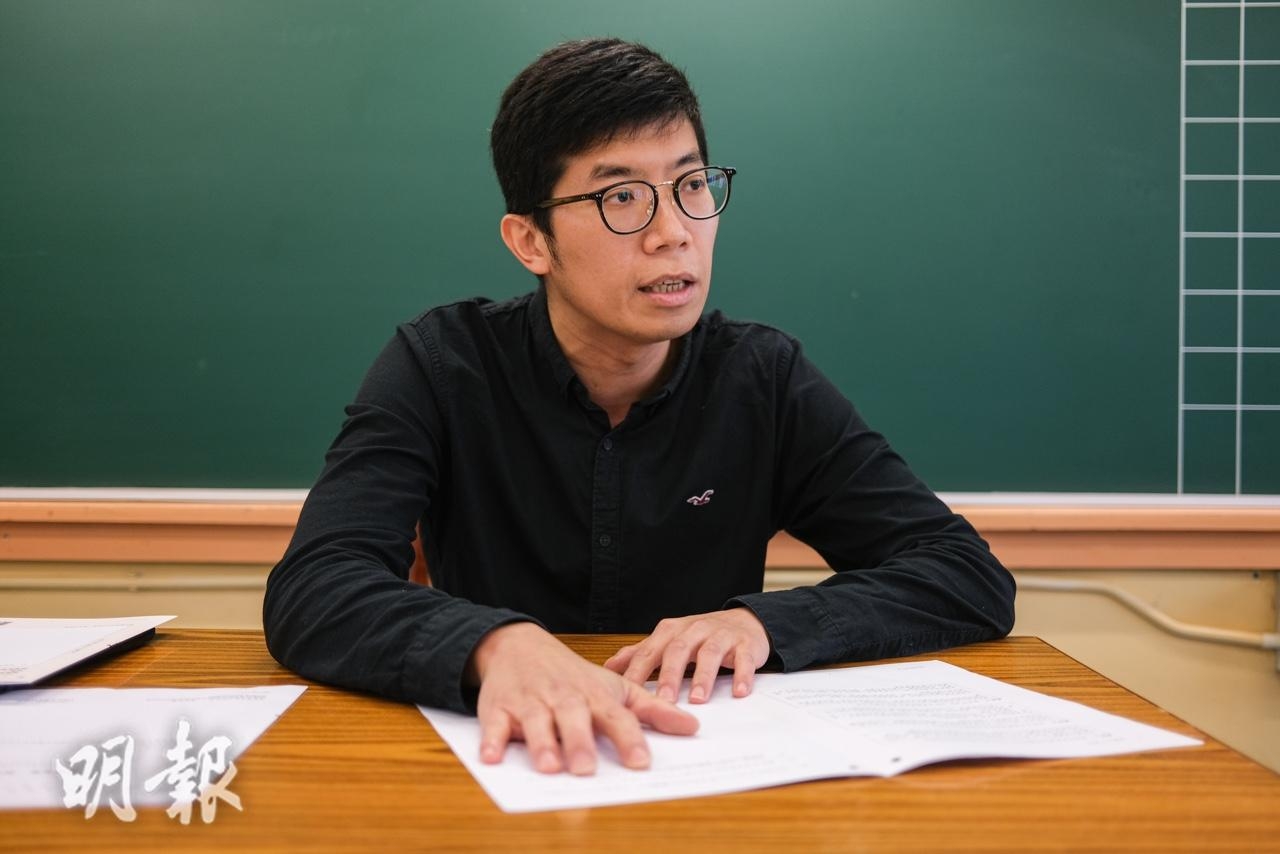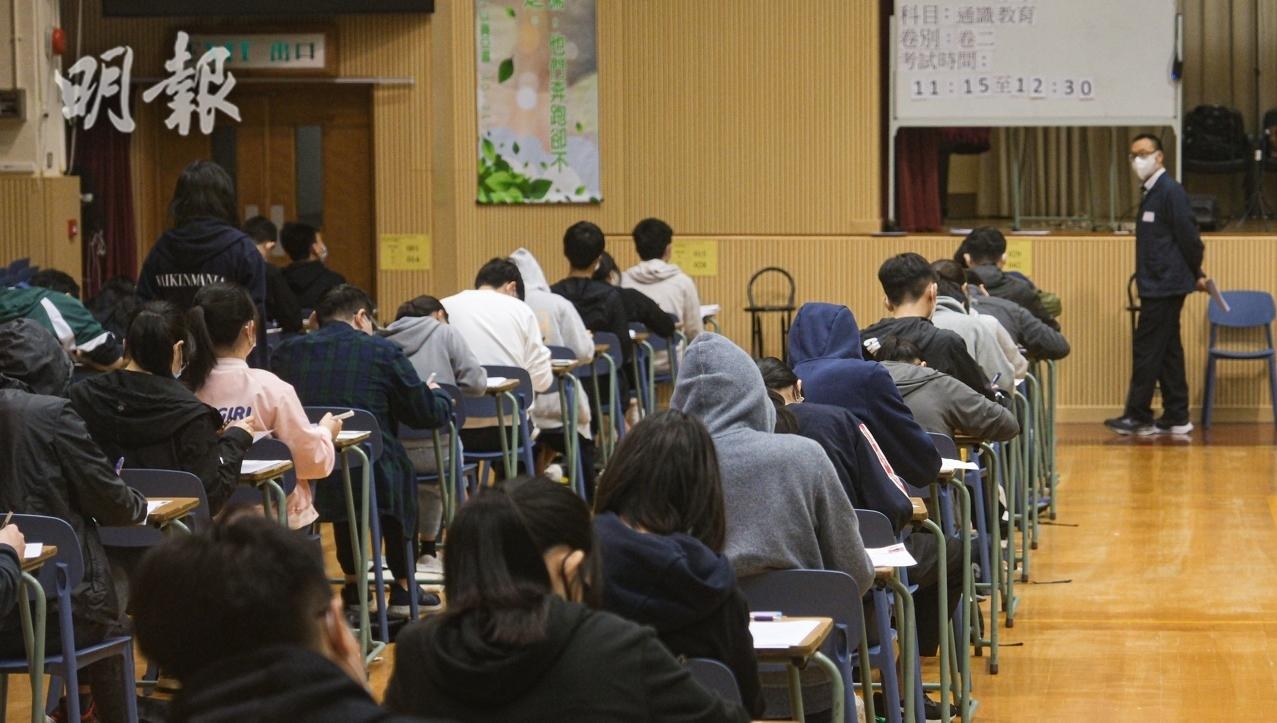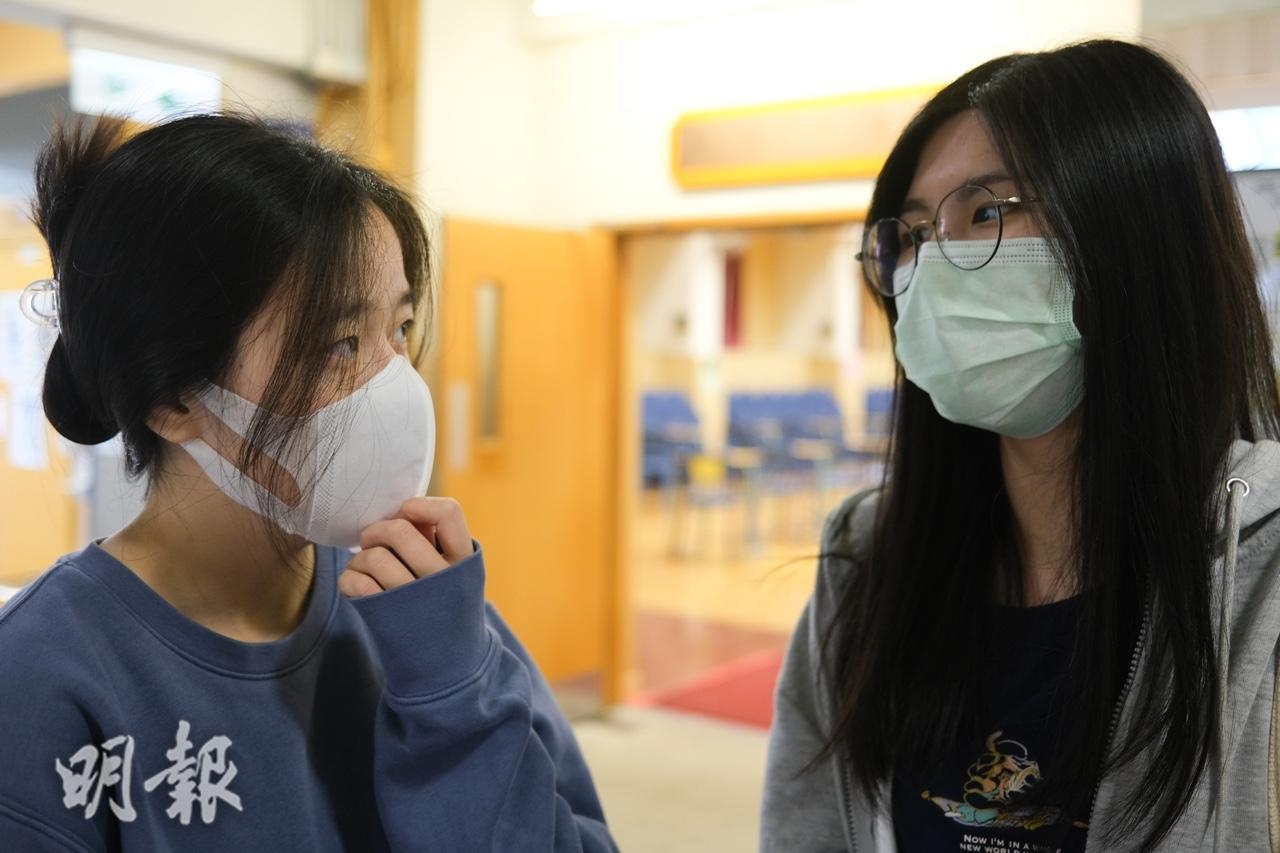- Home
- >
- Latest News
- >
- DSE 2023 Liberal Studies teacher claims that Volume 1 is the shallowest in history, with questions closely related to...
DSE 2023 Liberal Studies teacher claims that Volume 1 is the shallowest in history, with questions closely related to Civic Education (Ming Pao)
-

(Picture above) Liu Kin-ho, the head of the Liberal Studies Department at the Chinese Mission School in the Eastern District, believes that this year's two Liberal Studies papers are relatively easy. The question types in Paper 1 are similar to previous years, but some of the questions are simpler.
-

(Picture above) The last session of the Hong Kong Diploma of Secondary Education Examination for the Liberal Studies subject is being held today.
-

(Picture above) Regarding the absence of political topics in this year's exam, student Xu (left) expressed that it was expected, as there have been no political topics in recent years, so he had also given up studying related issues. Student Li (right) believes that the difficulty of the exam paper is normal. He found the second question in section B, which was about electronic learning, to be relevant to his own life experience and therefore easier to answer.
The last session of the Hong Kong Diploma of Secondary Education (DSE) Liberal Studies exam was held today (27th), and it will be fully replaced by the Citizenship and Social Development subject next year. Some students feel that this year's exam paper was relatively easy. Liberal Studies teachers also believe that this year's exam paper was relatively straightforward, with Part 1 being the easiest in the history of the exam. Some questions were simpler compared to previous years, and it is speculated that the Examination Authority may have wanted to align the questions with the upcoming Citizenship subject, allowing future candidates to use it as a reference. As for Part 2, students who have practiced are not expected to find it particularly difficult.
A student, Mr. Hui, who took the exam in the Eastern District, felt that the questions were not too difficult as they covered common social issues. He also noted that it was expected that there were no questions related to political issues this year, as there have been no such questions in recent years. Another student, Mr. Lee, considered the difficulty of the exam to be normal. He found the second question in Part 2, which was about e-learning, to be relevant to his own life experiences and relatively easy to answer. Both students expressed regret about the replacement of the DSE Liberal Studies subject with Citizenship next year, as they believe that Liberal Studies covers a wide range of issues and is not limited to specific regions. They also think that it helps to develop critical thinking and analytical skills.
Mr. Lau Kin-ho, the head of the Liberal Studies department at the Chinese Methodist Church Yuen Long Secondary School in the Eastern District, believes that this year's exam papers were relatively straightforward. He gave an example that in Part 1, Question 2a required students to identify two biases against the elderly based on the data, and in the past, students might have had to summarize the content of the data, but this time the answers were directly listed in the data. He also mentioned that the questions were simplified, such as in Question 1, where 4 marks were allocated for describing one characteristic shown in the data, whereas in the past, a similar 4-mark question might have required students to list two characteristics. Mr. Lau also pointed out that the three topics in Part 1, which covered sustainable development and public health, are also topics that will be covered in the Citizenship subject, indicating that the Examination Authority may want this year's exam paper to be a reference for future Citizenship subject candidates.
As for Part 2, Mr. Lau believes that the difficulty of the three topics varies greatly. The first topic about the global food crisis is relatively obscure, while the second topic about e-learning and the third topic about the "food delivery" industry are more relevant to students' lives and easier to grasp when answering. However, the third topic about Chinese society may be unfamiliar to students, so it is expected that most students will choose to answer the second topic.
